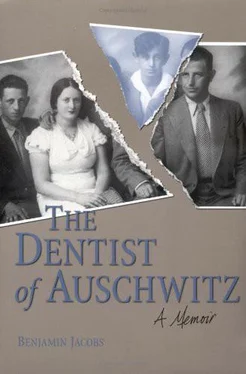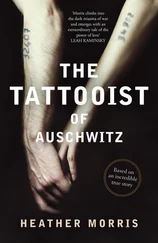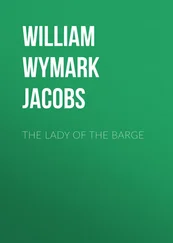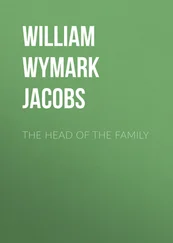Finally, simply because they were out of ammunition, they flew off. I stood up, shaken. My heart was pounding. Above a wrecked wagon and a dead horse hung a bloodied jacket with part of an arm still in it on a telephone pole. We were all scared, and we thanked God that we had survived. There had been wars before but none like this. This wasn’t war, people were saying. It was cold-blooded murder. “This is the result of the new terrible weapons,” Karol mumbled, shaking his head.
As we continued moving east, the sun rose high. It baked us in an unusual September heat. We came across dozens of dead animals and wrecked vehicles. The smell of carrion was everywhere. I could not shake off my memory of the arm dangling from that telephone pole. After a few kilometers we stopped, and when Papa tried to buy provisions for zlotys, he discovered that what was plentiful just a few days before had all but disappeared. Although our friends’ food was almost depleted, they continued to share with us what they had.
We had a few hours’ relief from the bombings, but soon the familiar roar reminded us that the Germans ruled the skies. We now knew what to expect, and when the wagon pulled off the road we swiftly ran for cover. I followed my brother into some dry and thorny bushes. We flattened ourselves, to be as obscure as possible. The planes came as before. Swooping down, they covered the area with machine-gun fire and dropped bombs. But their guns did the most damage. I checked myself after each salvo to see if I was hit and bleeding.
Not far from us, someone lay slumped over. We went over, and we could see blood trickling from his right temple. A bullet had ended his life. A woman in her middle forties came screaming, “It’s Stasiek. My God, it’s Stasiek!” Two men were behind her. There was sadness and sorrow and much sympathy, but people were afraid. All knew they could be next and tried to get away. The cries of “Stasiek!” rang in my ears for a long time.
I understood then why my parents had so feared war. It was on this day, in the middle of a Polish field under a sky filled with the rapid fire of airborne machine guns, that I lost the illusion that war was an adventure. As we continued on, we passed Lodz and drove on eastward toward Warsaw. We had decided not to stop before dawn. We knew now that daytime travel was dangerous, and from here on we would move only by night. Living off our benefactors became increasingly embarrassing. Besides, their food was nearly gone. We agreed that we would stop in the next village and again try to buy provisions.
Dark clouds hung in the sky, threatening rain, but as the sun came out they dispersed into another sunny morning. We knew it wouldn’t be long until the planes returned. We feared the next bombing, concerned that eventually we would have casualties. But we had to go on. We were near the Kampinoska barrens. The village of Kampinos was dead ahead. We stopped at the first farmhouse. No doubt, a land baron carried weight, and Mr. Chmielinski’s status was the reason for the remarkable greeting we received. The exceedingly hospitable peasant allowed us to move not only into his yard but also into his barn. He kept chattering in a dialect that was difficult for us to understand. When he realized that we could hardly follow him, he began gesturing with his hands.
His wife had just milked their cows. She came from the cowshed with their two children—a girl about eight and a boy not over fourteen. They both peeked shyly at us. The plopping of the warm milk in the woman’s pail stirred our hunger. Thanks to the bread, butter, eggs, and milk, which we bought from this family, we had our first warm meal since leaving home.
After the long night on the wagon, it was comforting to get down and stretch our legs. But before long the Stukas came again. God, will this never cease? I thought. This time, though, the planes—on their way to Warsaw, no doubt—just passed by.
The next morning we heard that the German troops had been advancing rapidly. Poland could no longer offer them any resistance. What remained of our army could not stop the advance. Rydz-Smigy’s bravado, “Not one button will we surrender!” now rung hollow indeed. For us to run any farther east seemed useless. With the farmer’s hospitality assured, we decided to stay. The German planes headed toward Warsaw no longer fired upon us. They flew back and forth as if on a regular airline route.
In the next forty-eight hours we heard rumors that the Soviets had declared war on Germany. Great Britain and France were already at war with Germany, but we wondered where they were. Was declaring war just a political ploy? It was no longer a question of whether we would fall into German hands, but when.
CHAPTER IV
German Occupation
We were homesick and tired of running. We looked forward to the day our flight would end. Kaziek, the farmer’s young son, became my daily companion, eager to show me around the village. On September 10, just before noon, we went for a walk. We had gone barely one kilometer when we heard the whine of a motorcycle. It soon became visible at the top of an incline, speeding toward us with a strange-looking soldier in the seat. Its sidecar was empty, and there was a trail of heavy smoke and dust. We were the only people on the road. We were frightened, but it was too late to run.
The motorcycle stopped. The soldier shut the engine off and paused a minute. He then raised his goggles to his forehead and asked if we spoke German.
“Yes,” I answered, lowering my eyes in fear.
“Are you afraid?”
“No,” I said clearly.
“Are many Polish soldiers here?” he asked me.
“No,” I responded.
“Have any gone by today?”
“No,” I repeated.
He had seen no one on the road. He asked us where everyone was. “Are the people afraid of us? Tell them that they need not be,” he said. Then this soldier reached into his bag and pulled out bars of chocolate and German cigarettes. As he handed them to us, he said, “This is for you,” and stared at us both. I was not prepared to see such friendliness or generosity from a German invader and hesitated. He nodded then and repeatedly urged us to accept, and we did. By then several other motorcycles had pulled over to join us. Had these soldiers not been dressed in such strange uniforms, they would have looked like the locals. Many armored vehicles and trucks approached. It was an impressive sight as the soldiers roared away on their motorcycles. We could see why the Germans had won such an easy victory over us. Unlike our army, which moved around on foot and on horseback, theirs was fully motorized.
We ran back to the farm with the news and told everyone how decent the German soldiers were. Everyone knew the Germans had arrived. If this is how they all are, we said, we won’t have much to worry about. On the road German troops were steadily passing, singing their glorious odes to the Führer.
We could run no farther. The only choice was to return as quickly as possible to our home. The flow of German tanks and vehicles moving east, however, made that impossible. Furthermore, we heard that the Germans had announced a ban on all civilian travel for the rest of the day.
The next morning we left early, and we traveled all day without incident. On the second day, however, several German officers stood on a hill, watching the streaming refugees. Women and children could pass in silence, while men had to tip their caps in wary respect. As we went by that grandstand review, an officer shouted at us in an belligerent voice, “Look at the Jews! They wanted to escape. Damned Jews, we’ll get you now!” Chmielinski saw our faces turn white. He knew the impact this had on us.
“Those bastards!” he said, bristling with outrage. “Someday we’ll get even with them.” Little did Chmielinski know that two weeks later he would be arrested. Later he would return to his family as a handful of ashes.
Читать дальше












